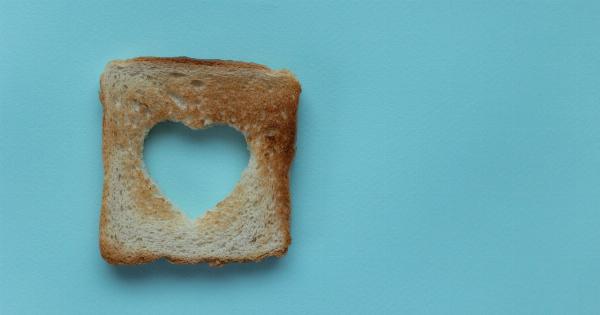Sodium is an essential mineral that plays a vital role in maintaining the balance of fluids in our bodies. However, consuming too much sodium can have detrimental effects on various aspects of our health, including procreation.
In this article, we will explore the harmful consequences of excessive sodium intake on fertility, pregnancy, and overall reproductive health. It is important to understand how sodium affects our reproductive system to make informed dietary choices and promote a healthy and successful procreation journey.
The Impact of Sodium on Fertility
Sodium can affect fertility in both men and women. High sodium diets have been associated with decreased sperm count, motility, and quality in men.
Studies have shown that excessive sodium intake can impair the production of mature and healthy sperm, making it more difficult for couples to conceive.
In women, a high sodium diet can disrupt the delicate balance of hormones necessary for regular menstrual cycles and ovulation.
Sodium-induced hormonal imbalances can lead to irregular periods, anovulation (lack of ovulation), and difficulty in getting pregnant. Furthermore, excessive sodium intake can negatively affect the health of the eggs, making it more challenging for them to be fertilized and develop into a healthy embryo.
Sodium and Pregnancy Complications
During pregnancy, maintaining a balanced intake of nutrients and minerals is crucial for the well-being of both the mother and the developing baby. Excessive sodium consumption can increase the risk of several pregnancy complications:.
Preeclampsia
Preeclampsia is a dangerous condition characterized by high blood pressure during pregnancy. Women who consume diets high in sodium are more likely to develop preeclampsia, which can have serious consequences for both the mother and the baby.
Preeclampsia increases the risk of premature birth, low birth weight, and can even lead to life-threatening complications.
Edema and Water Retention
High sodium diets are notorious for causing water retention in the body, leading to swelling, particularly in the extremities such as the hands, feet, and ankles.
Pregnant women who consume excessive sodium may experience severe edema, which can be uncomfortable, painful, and increase the risk of developing other complications such as gestational hypertension.
Gestational Hypertension
Gestational hypertension is a condition characterized by high blood pressure during pregnancy. Excessive sodium intake can exacerbate this condition and increase the risk of complications such as preeclampsia and placental abruption.
It is important for pregnant women to monitor their sodium intake to maintain healthy blood pressure levels.
Impaired Fetal Development
High sodium intake during pregnancy can negatively impact fetal growth and development.
Excess sodium can influence the flow of nutrients and oxygen across the placenta, potentially affecting the development of vital organs and leading to growth restriction in the baby. It is crucial for expectant mothers to prioritize a balanced diet to support optimal fetal growth.
The Relationship Between Sodium and Male Reproductive Health
Excessive sodium intake not only affects fertility in men but can also have an impact on overall male reproductive health:.
Erectile Dysfunction
Studies have shown that a high sodium diet can contribute to the development of erectile dysfunction (ED) in men.
Sodium can lead to endothelial dysfunction, which impairs blood flow to the penis and affects the ability to achieve and maintain an erection. Reducing sodium intake can help improve vascular health and reduce the risk of ED.
Sperm Quality
Sodium can adversely affect sperm quality, including sperm count, motility, and morphology. Excessive sodium intake can increase oxidative stress and cause damage to sperm DNA.
This can result in decreased sperm quality and contribute to infertility issues. Maintaining a balanced diet and limiting sodium intake can help promote healthy sperm production.
How to Reduce Sodium Intake
Reducing sodium intake is crucial for promoting overall reproductive health and increasing the chances of a successful procreation journey. Here are some tips to help reduce sodium consumption:.
Read Food Labels
Many processed and packaged foods contain high levels of sodium. Reading food labels can help you identify high-sodium products and make healthier choices. Opt for low-sodium or sodium-free alternatives whenever possible.
Cook from Scratch
Preparing meals at home using fresh ingredients allows you to control the amount of sodium in your meals. Focus on using herbs, spices, and other flavor enhancers to reduce the need for added salt.
Avoid Processed Foods
Processed foods such as deli meats, canned soups, and fast food tend to be high in sodium. Limiting your intake of these foods can significantly reduce your sodium consumption.
Choose Fresh Fruits and Vegetables
Fresh fruits and vegetables are naturally low in sodium and provide essential nutrients for reproductive health. Incorporate a variety of colorful fruits and vegetables into your diet to nourish your body and support fertility.
Limit Salty Snacks
Salty snacks like chips, pretzels, and salted nuts are often high in sodium. Opt for healthier snacks such as unsalted nuts, seeds, or fresh fruit to satisfy your cravings without the excessive sodium.
Drink Plenty of Water
Staying hydrated is important for overall health and helps flush out excess sodium from the body. Aim to drink at least 8 glasses of water per day, and avoid sugary beverages that can be high in sodium.
Consult with a Healthcare Professional
If you have concerns about your sodium intake or its impact on your procreation journey, it is advisable to consult with a healthcare professional.
A dietician or nutritionist can provide personalized guidance and recommendations based on your specific needs.
Conclusion
Excessive sodium intake can have detrimental effects on procreation, fertility, and overall reproductive health.
From impairing sperm quality to increasing the risk of pregnancy complications such as preeclampsia, the negative consequences of too much sodium cannot be overstated. By understanding the relationship between sodium and reproductive health, individuals can make informed dietary choices and take steps to reduce sodium intake.
Prioritizing a balanced diet, reading food labels, and opting for fresh, unprocessed foods can make a significant difference in promoting a healthy procreation journey for both men and women alike.





























